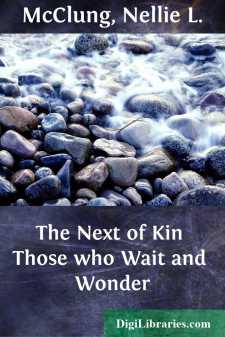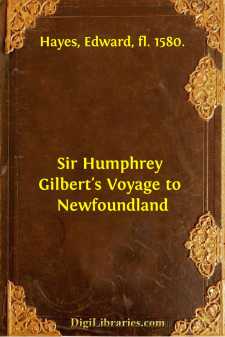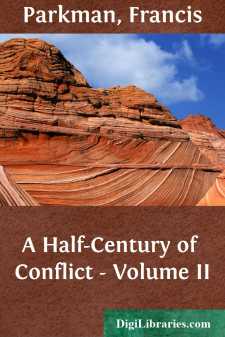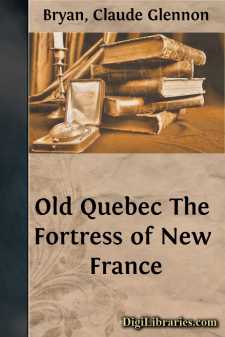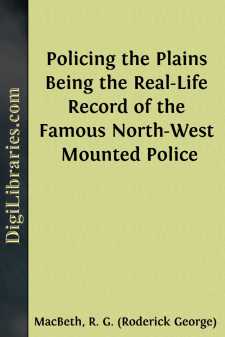History
- Africa 30
- Americas (North Central South West Indies) 50
- Ancient 68
- Asia 58
- Australia & New Zealand 8
- Canada
- Caribbean & West Indies 1
- Civilization 20
- Eastern Europe 12
- Europe 310
- Expeditions & Discoveries 60
- General 77
- Historical Geography 1
- Jewish 9
- Latin America 3
- Medieval 8
- Middle East 13
- Military 248
- Revolutionary 8
- Study & Teaching 5
- United States 353
- Western Europe 56
- World 13
Canada Books
Sort by:
FOREWORD It is with great pleasure I accede to the request of Canon Scott to write a foreword to his book. I first heard of my friend and comrade after the second battle of Ypres when he accompanied his beloved Canadians to Bethune after their glorious stand in that poisonous gap—which in my own mind he immortalised in verse:—O England of our fathers, and England of our sons,Above the roar of...
more...
CHAPTER IWhen a soldier's watch, with its luminous face,Loses its light and grows dim and black,He holds it out in the sun a spaceAnd the radiance all comes back;And that is the reason I'm thinking to-dayOf the glad days now long past;I am leaving my heart where the sunbeams play:I am trying to drive my fears away:I am charging my soul with a spirit gay,And hoping that it will last! We were...
more...
by:
Edward Hayes
INTRODUCTORY NOTE Sir Humphrey Gilbert, the founder of the first English colony in North America, was born about 1539, the son of a Devonshire gentleman, whose widow afterward married the father of Sir Walter Raleigh. He was educated at Eton and Oxford, served under Sir Philip Sidney's father in Ireland, and fought for the Netherlands against Spain. After his return he composed a pamphlet urging...
more...
by:
Francis Parkman
The occupation by France of the lower Mississippi gave a strong impulse to the exploration of the West, by supplying a base for discovery, stimulating enterprise by the longing to find gold mines, open trade with New Mexico, and get a fast hold on the countries beyond the Mississippi in anticipation of Spain; and to these motives was soon added the hope of finding an overland way to the Pacific. It was...
more...
ST MARY'S ISLE When the Ranger stole into the firth of Solway she carried an exultant crew. From the cliffs of Cumberland she might have been mistaken for a trading bark, lined and crusted by long travel. But she was something else, as the townsfolk of Whitehaven, on the north-west coast of England, had found it to their cost. Out of their harbour the Ranger had just emerged, leaving thirty guns...
more...
CHAPTER I THE COMING OF THE RAILWAY The Coming of the Railway—The Iron Road—The New Power—Engine and Rail—The Work of the Railway On the morning of October 6, 1829, there began at Rainhill, in England, a contest without parallel in either sport or industry. There were four entries: Braithwaite and Ericsson's Novelty.Timothy Hackworth's Sans-pareil.Stephenson and Booth's...
more...
About twelve years after the first Spanish caravel had touched the shores of North America, we find the French putting forth efforts to share in some of the results of the discovery. In the year 1504 some Basque, Breton and Norman fisher-folk had already commenced fishing along the bleak shores of Newfoundland and the contiguous banks for the cod in which this region is still so prolific. The Spanish...
more...
PRELUDE About the walled city of Quebec cling more vivid and enduring memories than belong to any other city of the modern world. Her foundation marked a renaissance of religious zeal in France, and to the people from whom came the pioneers who suffered or were slain for her, she had the glamour of new-born empire, of a conquest renewing the glories of the days of Charlemagne. Visions of a hemisphere...
more...
CHAPTER I THE FOUNDERS OF ACADIA The name Acadia, [Footnote: The origin of the name is uncertain. By some authorities it is supposed to be derived from the Micmac algaty, signifying a camp or settlement. Others have traced it to the Micmac akade, meaning a place where something abounds. Thus, Sunakade (Shunacadie, C. B.), the cranberry place; Seguboon-akade (Shubenacadie), the place of the potato, etc....
more...
A GREAT TRADITION A few years ago I was away north of Edmonton on the trail of Alexander Mackenzie, fur trader and explorer, who a century and a quarter before had made the amazing journey from the prairies over the mountains to the Pacific Coast. We looked with something like awe and wonder at the site of the old fort near the famous Peace River Crossing, from which, after wintering there in 1792, he...
more...



